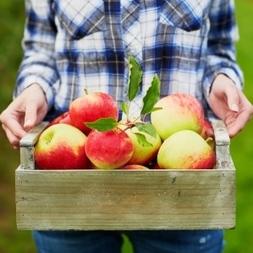What Organic Fruit & Vegetables Should I Buy?
Author: Sandy Abram Date Posted:6 July 2017
[@access_control@] [@article_id@] [@blog_author@] [@blog_content@] [@blog_id@] [@blog_subheader@] [@blog_subject@] [@category_id@] [@category_name@] [@category_ref@] [@category_subheader@] [@ccat_id@] [@compat_id@] [@compat_list_id@] [@compatcat_description@] [@compatcat_description2@] [@compatcat_fullname@] [@compatcat_name@] [@compatcat_ref@] [@content@] [@content_allow_reviews@] [@content_author@] [@content_compatibility_code@] [@content_description1@] [@content_description2@] [@content_description3@] [@content_external_ref1@] [@content_external_ref2@] [@content_external_ref3@] [@content_external_src@] [@content_fullpath@] [@content_id@] [@content_label1@] [@content_label2@] [@content_label3@] [@content_level@] [@content_module@] [@content_name@] [@content_ref@] [@content_short_description1@] [@content_short_description2@] [@content_short_description3@] [@content_type_code@] [@content_type_id@] [@content_type_name@] [@content_wufoo_form@] [@date_posted@] [@date_updated@] [@description@] [@description2@] [@external_ref@] [@gp_restriction@] [@id@] [@name@] [@page_content@] [@page_editor@] [@page_header@] [@page_id@] [@page_index@] [@page_subheader@] [@parent_ccat_id@] [@parent_content_id@] [@parent_id@] [@rating@](CODE) [@rating_decimal@](CODE) [@rating_round_half@](CODE) [@reviews@](CODE) [@short_description@] [@sortorder@] [@subtitle@] [@templatebody@] [@templatefoot@] [@templatehead@] [@templatesearch@] [@thumb@](CODE) [@thumb_alt@](CODE) [@thumb_alt1@](CODE) [@thumb_content_type_id@] [@timestamp@] [@title@] [@url@]

Are you umm-ing and ahh-ing about whether you should buy organic food and if it is in fact better for you? Do you wonder if washing your fruit and veg will get rid of all the nasties? The EWG's Dirty Dozen list just may have your answers
Eating plenty of fruits and veggies is good for you, right? And we’re all encouraged to include these in our daily meals. But what if that apple a day was doing more than just keeping the doctor away? What if it wasn't as rosy as it looked?
The Dirty Dozen List
I’ve been a big fan of the EWG (Environmental Working Group) for a long time now and each year they release their Dirty Dozen list. This list includes the twelve fruits and vegetables that were found to have the highest levels of pesticide residue on them including, fruits and vegetables that were washed and in some cases, peeled.
I know that an all organic diet is not always possible or an option for many families, so this guide can be really useful in helping us shop wiser and make informed choices about which fruits and vegetables we should try and buy organically and which conventional fruit and vegetables we should perhaps eat less of (but not at the detriment of eating fruit and veggies at all). And as for those conventional strawberries, looking so red, sweet and delectable on that dessert and fruit platter? Step away from the table. Once again strawberries are # 1 on the Dirty Dozen list with one sample found being contaminated with 20 different pesticides.
EWG’s – The 2017 Dirty Dozen List
The fruits and vegetables found to have the highest level of pesticide residue, starting with the highest.
1. Strawberries
2. Spinach
3. Nectarines
4. Apples
5. Peaches
6. Pears
7. Cherries
8. Grapes
9. Celery
10. Tomatoes
11. Sweet Bell Peppers
12. Potatoes
Interesting Facts from the 2017 Dirty Dozen Report
During the EWG study, 20 different pesticides were found on the most contaminated sample of strawberries. At least one pesticide was found in nearly every sample of strawberries, spinach, peaches, nectarines, cherries and apples tested whilst spinach samples were found on average to have twice as much pesticide residue by weight on them than any other crop. It is also interesting to note, that the fruits and vegetables listed on the Dirty Dozen are typically those that come without a protective skin and ones we eat unpeeled.
Eating chemically free is important for us all however it is especially important for infants, babies and young children as even low level exposure can be harmful to their little, but fast growing bodies.
Why Choose Organic Fruit & Vegetables
According to the 2017 Australian Organic Market Report, more than two out of three Australian households said they bought at least one organic product in the past year! This is a fabulous response and really shows how eating healthy organic food is shifting from niche to mainstream and becoming more accessible for all Australians. (Queue cheering music).
The top 10 reasons people said they bought organic food (in order) included chemical free, additive free, environmentally friendly, free range, non Genetically Modified (GMO), hormone and antibiotic free, more nutritious, knowing where my food comes from, cruelty free and better tasting food. Hallelujah! I couldn’t have said it better myself.
OK, perhaps I could add a little to that list. I also choose certified organic food as I can be assured my food hasn’t been irradiated or fumigated on import into Australia. Today, some fresh fruits, vegetables, teas, herbs, spices and foods are still being irradiated (even though they stopped irradiating cat food because it was found to be harmful - go figure) so going organic is healthier and safer in many ways.
Are you an organic fan? Are you starting to make the switch to organic food and why? Or are you sceptical? Let us know your story and experiences.







